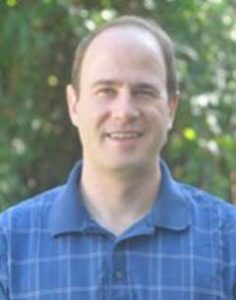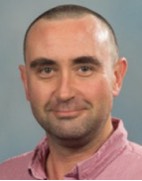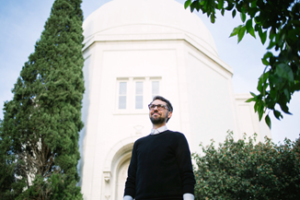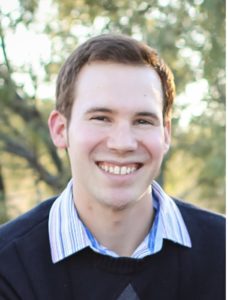The June 2018 edition of the Huachuca Astronomy Club newsletter, Nightfall, is now available for download. Submissions for next month’s issue can be sent to , our Nightfall editor
 The meeting will be held on June 8th in the Student Union Building at Cochise College 901 N. Colombo Avenue, Sierra Vista at 7pm
The meeting will be held on June 8th in the Student Union Building at Cochise College 901 N. Colombo Avenue, Sierra Vista at 7pm
Dr. Chad Bender studies exoplanets to improve our understanding of how planets and planetary systems form and evolve. He and colleagues are currently building a pair of spectrometers that will search close- by stars for Earth sized planets that might be capable of supporting life.
Dr. Bender received his Ph.D. in 2006. He is currently an Associate Astronomer at The University of Arizona’s Steward Observatory
The first exoplanets discovered in 1993 paved the way for an astronomical revolution. The subsequent 25 years have revealed thousands of planets orbiting stars, with a diversity of characteristics not seen in our Solar System, nor even previously imagined. Over the past decade, astronomers have pushed detection sensitivities towards smaller and smaller planets and are now finally at the cusp of discovering Earth like planets around nearby stars. Dr. Bender will describe some of these discoveries, and the cutting-edge instrumentation and surveys that are finding them.
Our May 18th meeting at 7pm in the Student Union, Cochise College Sierra Vista features a talk by Dr. David Sand.
Dr. Sand will give a presentation titled: Gravitational Waves and Things that Go Boom in the Night
 In his presentation, Dr. Sand talks about the ‘time domain’ revolution in astronomy, and how we are finding new ways to study stars that merge, burp and explode by looking at their imprints on space-time via gravitational waves. He will highlight recent results on the gravitational wave detection of the merger of two neutron stars and look to the future of this field. Dr. Sand’s interest in things that go bump in the night led to his team’s search for electromagnetic counterparts to gravitational waves.Continue reading
In his presentation, Dr. Sand talks about the ‘time domain’ revolution in astronomy, and how we are finding new ways to study stars that merge, burp and explode by looking at their imprints on space-time via gravitational waves. He will highlight recent results on the gravitational wave detection of the merger of two neutron stars and look to the future of this field. Dr. Sand’s interest in things that go bump in the night led to his team’s search for electromagnetic counterparts to gravitational waves.Continue reading
 Our April 13th meeting at 7pm in the Student Union, Cochise College Sierra Vista features a talk by Dr. Kevin Hainline.
Our April 13th meeting at 7pm in the Student Union, Cochise College Sierra Vista features a talk by Dr. Kevin Hainline.
Dr. Hainline is an astronomer and researcher on the James Webb Space Telescope NIRCam science team at Steward Observatory at the University of Arizona. His research focuses on hunting for active galaxies and quasars and understanding the effects of a growing, powerful supermassive black hole on its host galaxy. Currently, he is helping to plan the initial deep observations to be done by JWST to explore the evolution of the earliest galaxies. He received his PhD from UCLA in 2012 and spent three years as a researcher and professor at Dartmouth College in New Hampshire, before moving to Tucson to work on JWST. Kevin has a passion for science outreach education, speaking about astronomy any chance he can get. Kevin is very enthusiastic.
The annual Messier Marathon is being sponsored by both the Palominas Astronomy Club and Huachuca Astronomy Club. This years event will be host by Keith Mullen at the Repogazer Observatory on Saturday, March 17th. See the attached flyer for more details.
 Our March 9 meeting at 7pm in the Student Union, Cochise College Sierra Vista features a talk by Dr. Nick Ballering.
Our March 9 meeting at 7pm in the Student Union, Cochise College Sierra Vista features a talk by Dr. Nick Ballering.
Nick is a postdoctoral research associate in astronomy at the University of Arizona, Steward Observatory. He received his B.S. in astronomy and physics from the University of Wisconsin, Madison. He then attended graduate school at the University of Arizona under the guidance of professor George Rieke, receiving his PhD in 2016. His research interests revolve around exoplanetary systems. What is their architecture? How do they form? How common or rare is our solar system? Nick works to answer these questions by observing circumstellar disks.